Your Ultimate Guide to Gluten-Free Eating: Does Banana Have Gluten?
Does Banana Have Gluten?
❎ No, bananas don’t have gluten. They’re naturally gluten-free fruits. But if you’re sensitive to gluten or have celiac disease, watch out for cross-contamination risks in processed banana products or those made in facilities with gluten ingredients.
In the world of dietary concerns and health-conscious eating, gluten has become a hot topic. But what about bananas? Does banana have gluten? Let’s delve into this intriguing question to provide you with the comprehensive insights you seek.
Bananas, with their natural sweetness and convenience, are a staple in many people’s diets. Whether enjoyed as a quick snack, blended into smoothies, or incorporated into various recipes, their versatility is unmatched. But, for those with gluten issues, knowing the gluten content of foods is crucial.
In this comprehensive guide, we will explore the relationship between gluten and fruits, specifically bananas. We will understand what gluten is, the sources of gluten in the diet, and how it relates to celiac disease and other gluten-related disorders. We will then delve into the topic of whether bananas contain gluten and discuss the nutritional profile of bananas.
If you’ve ever questioned whether bananas are gluten-free, you’re in the right place. Let’s explore the facts about bananas and gluten so that you can make informed dietary choices.

Table of Contents
- Understanding Gluten and Its Sources
- Gluten in Fruits
- Does Banana Have Gluten?
- Cross-Contamination with Gluten
- Incorporating Bananas into a Gluten-Free Diet
- Health Benefits of Eating Bananas
- Frequently Asked Questions
- Final Thoughts: Does Banana Have Gluten?
Understanding Gluten and Its Sources
Before we answer “Does banana have gluten?” it’s important to understand what it is. Gluten is a protein found in grains. It is responsible for giving food its shape, texture, and elasticity.
Although gluten is safe for most, it can trigger reactions in those with celiac disease, gluten ataxia, or sensitivity. These conditions prompt an immune response to gluten, resulting in symptoms and health problems.
Recognizing gluten sources in your diet is crucial for a gluten-free life.

What is Gluten?
Gluten is a protein composite composed of gliadin and glutenin. It is primarily found in grains such as wheat, barley, rye, and triticale.
For individuals with celiac disease, gluten ataxia, or gluten intolerance, consuming gluten can trigger an immune response that damages the small intestine and leads to various symptoms.
Celiac disease is an autoimmune condition where the immune system attacks the small intestine in response to gluten ingestion.
Gluten ataxia is a neurological condition that affects the brain and causes problems with coordination and movement.
Gluten intolerance, also known as non-celiac gluten sensitivity (NCGS), is a condition where individuals experience symptoms similar to those with celiac disease and wheat allergy but do not have the same immune response or intestinal damage.
Moreover, wheat is among the top eight common food allergens. Since all forms of wheat contain gluten, individuals with a wheat allergy adhere to a gluten-free diet.
Common Sources of Gluten in Diet
Soy sauce: Traditional soy sauce is made from fermented soybeans and wheat, making it a source of gluten. However, there are gluten-free soy sauce alternatives available.
Brown rice: While brown rice itself is gluten-free, processed brown rice products such as brown rice pasta and bread may contain gluten if not labeled gluten-free.
Barley: Barley contains gluten and is commonly found in bread, cereals, and beer. It is important to avoid all barley-based products if following a gluten-free diet.
Gluten in Fruits
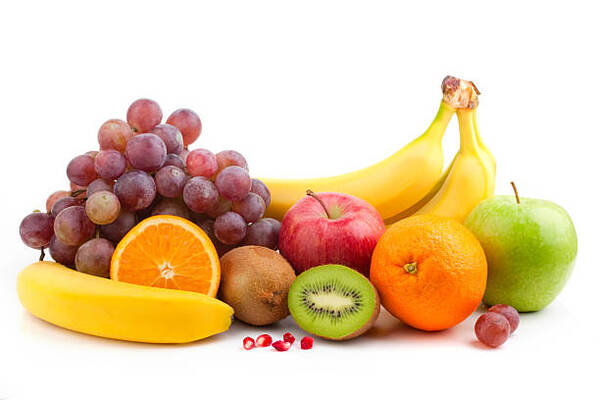
Following a gluten-free diet is essential for individuals with celiac disease, gluten ataxia, or gluten sensitivity.
What about fruits on a gluten-free diet? Fruits are generally considered safe to consume as they naturally do not contain gluten.
It’s crucial to watch out for cross-contamination and ingredients in fruit-based products. Processed foods like canned fruit in syrup or fruit pies with gluten crusts might have gluten.
It is always recommended to read labels and choose certified gluten-free fruits or fresh fruits to ensure a gluten-free diet.
Do Fruits Contain Gluten?
Fruits, including bananas, are naturally gluten-free. They do not contain gluten proteins and can safely be consumed by individuals following a gluten-free diet.
The Celiac Disease Foundation confirms that fruits are generally safe for individuals with celiac disease and other gluten-related conditions. However, it is crucial to be cautious about cross-contamination and the use of gluten-containing ingredients in processed fruit products.
For example, canned fruit in syrup or fruit pies with gluten-containing crusts may contain gluten. It is always recommended to read labels carefully and choose certified gluten-free fruits or fresh fruits to ensure a gluten-free diet.

How to Identify Gluten-Free Fruits
Identifying gluten-free fruits is relatively simple, as most fresh fruits are naturally gluten-free.
Check labels when buying processed fruit products like canned or frozen fruits. Make sure to read the ingredients to avoid any gluten-containing substances.
Opt for fruits certified gluten-free by trusted organizations. This certification guarantees the product has been tested and meets gluten-free diet standards.
Shop at specialized gluten-free grocery stores that focus on gluten-free products, including fruits. These stores offer peace of mind and a broader range of gluten-free options.
Prevent cross-contamination: When dealing with fresh fruits, be sure to wash them well to eliminate any chance of gluten transfer from surfaces or utensils.
Does Banana Have Gluten?
Bananas are a popular fruit known for their delicious taste and nutritional benefits. However, individuals following a gluten-free diet may wonder if bananas are safe to consume. So, does banana have gluten?

Does Banana Have Gluten?
So, are bananas gluten-free? Yes! They do not contain any gluten proteins and can be safely consumed by individuals following a gluten-free diet.
Bananas can be an excellent option for those with celiac disease, gluten ataxia, or gluten intolerance. They are versatile fruits that can be enjoyed alone, added to smoothies or baked goods, or used as a natural sweetener.
Research found that bananas are gluten-free when testing a wheat-free diet for celiac disease. Scientific studies have confirmed bananas as a safe, nutritious option for those with a gluten-related disorder.
NOTE: Although gluten-free in their natural form, bananas may cause problems in people with celiac disease. Bananas have a protein called lectin which can trigger an autoimmune response. Additionally, bananas contain chitinase, another protein that can lead to gastrointestinal discomfort in those with gluten intolerance.
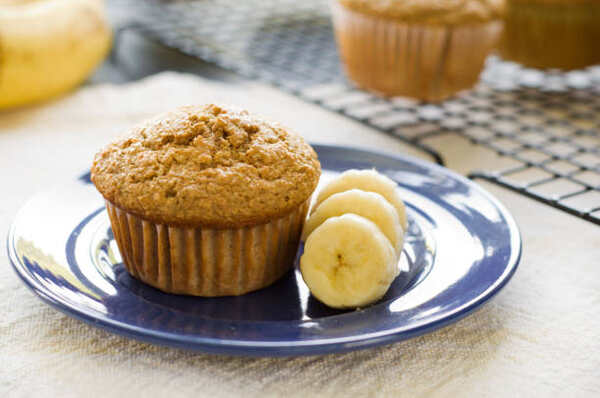
The Nutritional Profile of Bananas
Bananas are not only gluten-free but also packed with essential nutrients. They are a rich source of dietary fiber, potassium, vitamin C, and various other vitamins and minerals.
Here is a breakdown of the nutritional profile of one medium-sized banana (126g):
- Calories: 112
- Carbohydrates: 28.8g
- Fiber: 3.3g
- Sugar: 15.4g
- Protein: 1.37g
- Fat: 0.4g
- Potassium: 451mg
- Vitamin C: 11mg
- Vitamin B6: 0.5mg
- Magnesium: 34mg
This fruit is packed with nutrients and tastes great. Bananas are good for digestion due to their fiber content, and they support heart health and muscle function with potassium. Plus, the vitamins and minerals in bananas boost overall well-being.
Cross-Contamination with Gluten
Cross-contamination is a significant concern for individuals following a gluten-free diet. Even if a food is naturally gluten-free, it can become contaminated with gluten during processing, handling, or cooking.
This can happen in various ways, such as using the same kitchen utensils, cutting boards, or cooking surfaces for both gluten-containing and gluten-free foods. Shared condiments, toasters, and fryers can also contribute to cross-contamination.
Even small amounts of gluten can be harmful to individuals with celiac disease, gluten ataxia, wheat allergy, or non-celiac gluten sensitivity. It is crucial to take steps to prevent cross-contamination, both at home and when dining out.
By following proper practices and being aware of potential sources of gluten contamination, individuals can maintain a safe and healthy gluten-free lifestyle.
Preventing Cross-Contamination in Gluten-Free Diets
To prevent cross-contamination, always use different cooking tools and equipment for gluten-free foods. Separate cutting boards, knives, pots, and pans to avoid gluten particles touching gluten-free dishes.
In shared kitchens or fridges, label gluten-free items clearly to avoid contact with gluten-containing foods accidentally.
For gluten-free safety, keep separate jars for condiments, spreads, and sauces. Avoid cross-contamination by refraining from double-dipping or using a knife in a gluten-contaminated jar.
Educate others about gluten-free requirements. When eating out or socializing, let people know about your diet. This raises awareness and helps prevent cross-contamination efficiently.
Incorporating Bananas into a Gluten-Free Diet
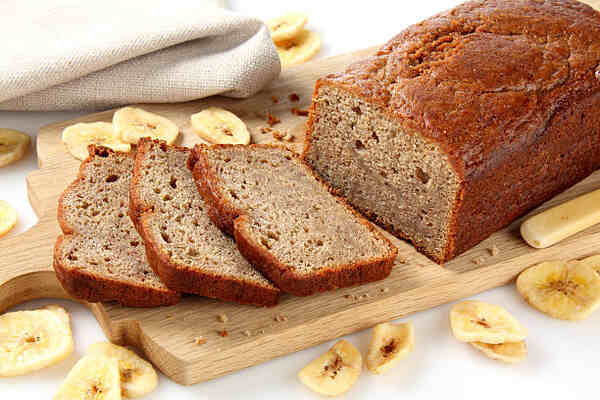
Bananas are a versatile fruit easily incorporated into a gluten-free diet. They can be enjoyed on their own as a snack, added to smoothies, or used in various gluten-free recipes.
Let’s explore creative ways to include bananas in your diet and provide some delicious banana-based gluten-free recipes to try.
Banana smoothies: Blend bananas with your choice of milk or dairy-free alternatives, along with other fruits and a handful of greens for a nutritious and refreshing smoothie.
Banana-based desserts: Use ripe bananas to make gluten-free pancakes, muffins, or bread. The natural sweetness of bananas adds flavor and moisture to baked goods.
Banana ice cream: Freeze ripe bananas and blend them until smooth for a healthy and dairy-free alternative to ice cream.
Banana chips: Slice bananas and bake them in the oven or dehydrate them for a crunchy snack.
Banana-Based Gluten-Free Recipes to Try
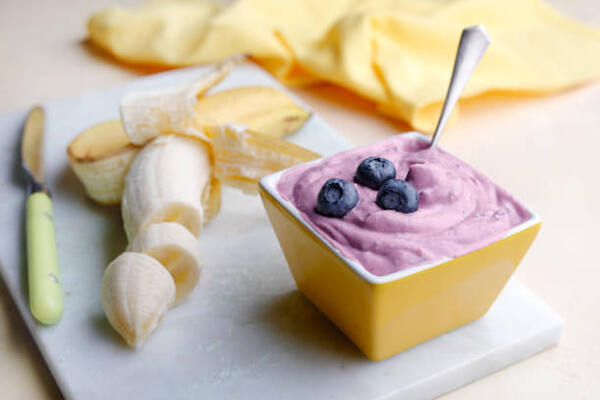
Bananas can be the star ingredient in delicious and gluten-free recipes. Here are a few ideas to inspire your culinary adventures:
- Banana bread: Use gluten-free flour blends to make moist and flavorful banana bread.
- Banana pancakes: Mash ripe bananas and combine them with a gluten-free pancake mix for a delightful breakfast treat.
- Banana smoothie bowl: Blend frozen bananas with your choice of milk and toppings like granola, nuts, and fresh fruits for a nutritious and filling breakfast or snack.
- Banana muffins: Combine mashed bananas with gluten-free flour, eggs, and a touch of sweetness for a tasty and portable snack.
Health Benefits of Eating Bananas
Bananas offer numerous health benefits that make them a valuable addition to a gluten-free diet. They are an excellent source of vitamins, minerals, and dietary fiber.
Nutritional Benefits of Bananas
Bananas are not only gluten-free but also packed with essential nutrients. They are a rich source of dietary fiber, potassium, vitamin C, and various other vitamins and minerals.
The fiber content in bananas helps promote regular digestion and can aid in maintaining a healthy weight.
Potassium is important for heart health and proper muscle function. Vitamin C is an antioxidant that supports the immune system.
Bananas also provide a natural source of energy due to their carbohydrate content. Including bananas in a balanced diet can help meet nutritional needs and contribute to overall well-being.
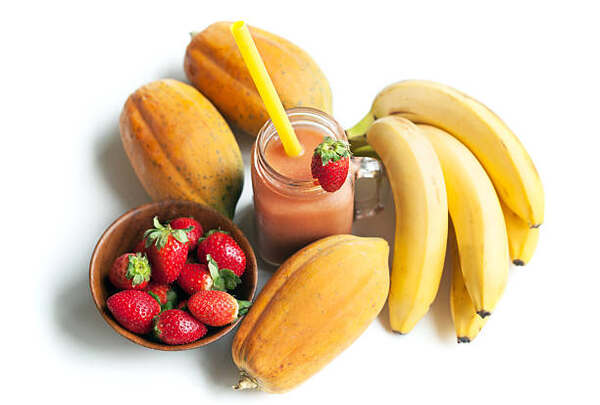
How Bananas Can Enhance a Gluten-Free Diet
Bananas are a versatile fruit that can enhance a gluten-free diet in various ways. They can be used as a natural sweetener in gluten-free baked goods, providing flavor and moisture without the need for added sugars.
Bananas can also be enjoyed as a healthy snack, providing energy and essential nutrients. Their high fiber content helps promote regular digestion and can be particularly beneficial for those with celiac disease or gluten sensitivity.
Additionally, bananas are convenient and portable for on-the-go snacking or pre- and post-workout fuel. By incorporating bananas into your diet, you can enjoy their nutritional benefits while indulging in delicious and versatile food options.
Frequently Asked Questions
Can Bananas Cause Gluten Cross-Reactivity?
Bananas themselves do not contain gluten and do not cause gluten cross-reactivity. However, individuals with celiac disease or gluten sensitivity may have other food sensitivities or allergies that can cause cross-reactivity. It is important to consult with a healthcare professional or registered dietitian for personalized advice.
Do Any Fruits Have Gluten?
No, fruits in their natural form do not contain gluten. Gluten is a protein found in grains such as wheat, barley, and rye, but not in fruits. There’s a risk of cross-contamination if fruits are processed in facilities that handle gluten-containing foods. Be careful with processed fruit products or those exposed to gluten during production.
Final Thoughts: Does Banana Have Gluten?
When starting a gluten-free diet, understanding the relationship between fruits like bananas and gluten is paramount. Bananas are inherently gluten-free and offer a plethora of nutritional advantages, rendering them an optimal choice for individuals adhering to a gluten-free lifestyle.
By incorporating bananas into your diet and experimenting with banana-infused gluten-free recipes, you can relish their health benefits while upholding a gluten-free diet.
It’s also important to be aware of cross-contamination risks and take precautions to maintain your gluten-free diet. Adding bananas to your meals not only brings tasty flavors but also boosts your well-being.
Whether enjoyed on their own as a snack or blended into smoothies and baked goods, bananas can be a versatile and nutritious staple in a gluten-free diet.

